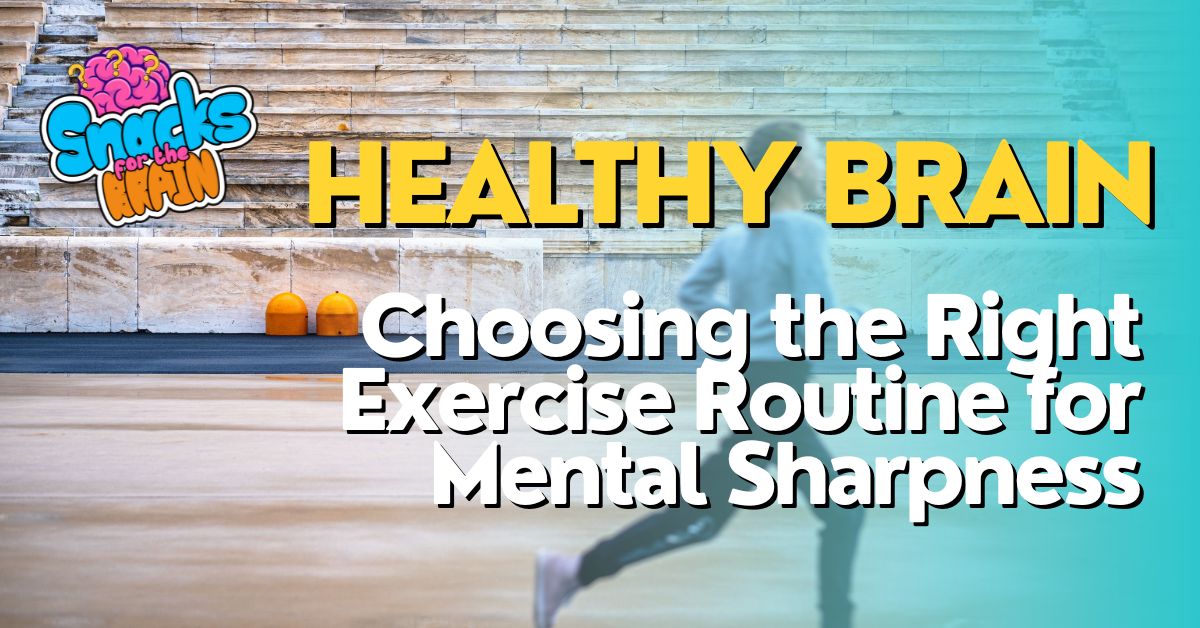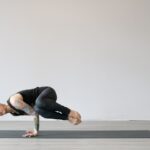As we age, it becomes increasingly important to stay active in order to maintain our overall health and well-being. Regular physical activity has been shown to have numerous benefits for older adults, including improved cardiovascular health, increased muscle strength and flexibility, and a reduced risk of chronic diseases such as diabetes and osteoporosis. In addition to these physical benefits, staying active can also have a positive impact on cognitive function and mental well-being. Engaging in regular exercise has been linked to a lower risk of cognitive decline and dementia, as well as improved mood and overall mental health. By staying active as we age, we can not only improve our physical health but also maintain our cognitive abilities and enjoy a higher quality of life.
Staying active as we age is also important for maintaining independence and mobility. Regular exercise can help older adults maintain their strength, balance, and coordination, reducing the risk of falls and injuries. By staying physically active, older adults can continue to perform daily activities and maintain their independence for longer, allowing them to live a more fulfilling and active lifestyle. In addition, staying active can also help older adults manage chronic conditions such as arthritis and back pain, improving their overall quality of life. Overall, staying active as we age is crucial for maintaining both physical and mental well-being, allowing older adults to live healthier, more independent lives.
Key Takeaways
- Staying active as you age is crucial for maintaining physical and mental health
- Exercise has numerous benefits for keeping the mind sharp and improving cognitive function
- Types of exercises that can benefit cognitive health include aerobic, strength training, flexibility, and balance exercises
- Aerobic exercises, such as walking or swimming, can improve cognitive function and reduce the risk of dementia
- Strength training exercises, like weightlifting, can also enhance cognitive abilities and promote brain health
- Flexibility and balance exercises, such as yoga or tai chi, can help maintain cognitive function and prevent falls in older adults
- Incorporating exercise into your daily routine can be as simple as taking a brisk walk, doing bodyweight exercises at home, or joining a fitness class
Benefits of Exercise for a Sharper Mind
Regular exercise has been shown to have numerous benefits for cognitive function and mental well-being. Engaging in physical activity can help improve memory, attention, and decision-making skills, as well as reduce the risk of cognitive decline and dementia. Exercise has also been linked to improved mood and reduced symptoms of anxiety and depression, leading to better overall mental health. In addition, regular physical activity can help older adults manage stress and improve sleep quality, further contributing to a sharper mind and better cognitive function.
Furthermore, exercise has been shown to promote the growth of new brain cells and improve the connections between brain cells, leading to enhanced cognitive function and a sharper mind. Physical activity also increases blood flow to the brain, delivering more oxygen and nutrients that are essential for optimal brain function. By engaging in regular exercise, older adults can improve their cognitive abilities, maintain mental sharpness, and reduce the risk of age-related cognitive decline.
Types of Exercises for a Sharper Mind
There are several types of exercises that have been shown to be particularly beneficial for maintaining a sharper mind as we age. Aerobic exercises such as walking, swimming, and cycling have been linked to improved cognitive function and a reduced risk of cognitive decline. These types of exercises increase blood flow to the brain, promote the growth of new brain cells, and improve overall brain function. In addition, strength training exercises such as lifting weights or using resistance bands can help improve memory and cognitive function by promoting the growth of new brain cells and enhancing the connections between brain cells.
Flexibility and balance exercises such as yoga and tai chi can also be beneficial for maintaining a sharper mind. These types of exercises not only improve physical balance and coordination but also require focus and concentration, which can help improve cognitive function. Furthermore, these exercises can help reduce the risk of falls and injuries, allowing older adults to maintain their independence and mobility.
Aerobic Exercises for Cognitive Health
Aerobic exercises are particularly beneficial for cognitive health as they increase blood flow to the brain, promote the growth of new brain cells, and improve overall brain function. Activities such as walking, swimming, cycling, and dancing have been shown to have a positive impact on cognitive function and can help reduce the risk of cognitive decline. Engaging in regular aerobic exercise can also improve memory, attention, and decision-making skills, leading to a sharper mind and better cognitive function.
In addition to these cognitive benefits, aerobic exercises also have numerous physical benefits for older adults, including improved cardiovascular health, increased endurance, and reduced risk of chronic diseases such as diabetes and heart disease. By incorporating aerobic exercises into their routine, older adults can not only improve their physical health but also maintain their cognitive abilities and enjoy a higher quality of life.
Strength Training for a Sharper Mind
Strength training exercises such as lifting weights or using resistance bands can also be beneficial for maintaining a sharper mind as we age. These types of exercises have been shown to promote the growth of new brain cells and enhance the connections between brain cells, leading to improved memory and cognitive function. In addition, strength training can help older adults maintain muscle mass and bone density, reducing the risk of falls and fractures.
Furthermore, strength training exercises have been linked to improved mood and reduced symptoms of anxiety and depression, leading to better overall mental health. By incorporating strength training into their routine, older adults can not only improve their physical strength but also maintain their cognitive abilities and enjoy a higher quality of life.
Flexibility and Balance Exercises for a Sharper Mind

Flexibility and balance exercises such as yoga and tai chi can also be beneficial for maintaining a sharper mind as we age. These types of exercises not only improve physical balance and coordination but also require focus and concentration, which can help improve cognitive function. In addition, flexibility and balance exercises can help reduce the risk of falls and injuries, allowing older adults to maintain their independence and mobility.
Furthermore, these types of exercises have been linked to improved mood and reduced symptoms of anxiety and depression, leading to better overall mental health. By incorporating flexibility and balance exercises into their routine, older adults can not only improve their physical balance but also maintain their cognitive abilities and enjoy a higher quality of life.
Tips for Incorporating Exercise into Your Daily Routine
Incorporating exercise into your daily routine doesn’t have to be difficult or time-consuming. There are many simple ways to stay active throughout the day that can have a positive impact on your physical and mental well-being. For example, taking a brisk walk around the neighborhood, gardening, or doing household chores can all be effective forms of physical activity that can help maintain a sharper mind.
It’s also important to find activities that you enjoy and that fit into your lifestyle. Whether it’s dancing, swimming, or playing tennis, finding an activity that you look forward to can make it easier to stay motivated and consistent with your exercise routine. Additionally, consider incorporating exercise into your daily activities by taking the stairs instead of the elevator or parking further away from your destination to get some extra steps in.
Finally, consider finding a workout buddy or joining a group exercise class to stay motivated and accountable. Exercising with others can make it more enjoyable and provide social interaction, which is important for overall well-being. By finding ways to incorporate exercise into your daily routine that you enjoy, you can maintain a sharper mind and enjoy better physical and mental health as you age.
Looking to boost your cognitive abilities and memory as you age? Check out this insightful article on Consejos para aumentar la inteligencia y la memoria for valuable tips and strategies. As we age, it’s crucial to engage in exercises that not only keep our bodies active but also sharpen our minds. For more expert advice on the importance of exercising the brain, visit Intelligencesnhacks.com.
FAQs
What are the benefits of staying active as you age?
Staying active as you age has numerous benefits, including improved physical health, better mental health, increased mobility and flexibility, and a reduced risk of chronic diseases such as heart disease, diabetes, and osteoporosis.
What types of exercises are recommended for older adults?
Recommended exercises for older adults include aerobic activities such as walking, swimming, or cycling, strength training exercises using resistance bands or light weights, flexibility exercises like yoga or tai chi, and balance exercises to reduce the risk of falls.
How often should older adults exercise?
Older adults should aim for at least 150 minutes of moderate-intensity aerobic activity, 75 minutes of vigorous-intensity aerobic activity, or a combination of both each week, along with muscle-strengthening activities on two or more days a week.
Are there specific exercises that can help maintain a sharper mind as you age?
Yes, exercises that challenge the brain, such as puzzles, crosswords, and memory games, as well as activities that require coordination and balance, can help maintain a sharper mind as you age. Additionally, activities that involve learning new skills or languages can also be beneficial.
What are some tips for staying motivated to exercise as you age?
Some tips for staying motivated to exercise as you age include finding activities that you enjoy, setting realistic goals, varying your routine to prevent boredom, and seeking support from friends, family, or a fitness group. It’s also important to listen to your body and make adjustments as needed.






